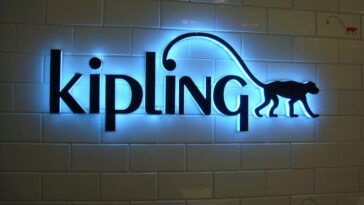In the world of contemporary architecture, creating a visually striking and durable exterior is essential for any building. The ACP facade is an excellent solution for architects and designers seeking a blend of aesthetics, functionality, and sustainability. Aluminum Composite Panels (ACP) have gained immense popularity as the ideal material for facades, thanks to their ability to withstand harsh weather conditions while providing a sleek, modern look. Whether it’s a high-rise building, commercial property, or residential complex, an ACP facade can transform the exterior of any structure, offering both protection and elegance.
What is an ACP Facade?
An ACP facade refers to the use of Aluminum Composite Panels as the exterior cladding of a building. These panels consist of two thin layers of aluminum surrounding a non-aluminum core, usually made of polyethylene or a fire-resistant material. The versatility of ACP panels allows architects to design facades in a variety of colors, textures, and finishes, making them suitable for a wide range of architectural styles.
ACP facades are lightweight, yet incredibly strong, making them easy to install and maintain. Their ability to withstand extreme weather conditions, including heavy rain, wind, and intense sunlight, makes them the ideal choice for both urban and rural settings. In addition to their durability, ACP facades are highly customizable, allowing for creative and innovative designs that can enhance the overall appearance of a building.
The Benefits of ACP Facades for Buildings
- Enhanced Durability and Weather Resistance: One of the primary reasons businesses and homeowners opt for an ACP facade is its long-lasting durability. ACP panels are designed to withstand a variety of harsh environmental factors. They are resistant to extreme weather conditions, including rain, heat, and UV rays, ensuring that your building’s facade remains intact and visually appealing for many years. Additionally, they are resistant to corrosion, which is especially important for buildings located in coastal areas.
- Aesthetic Appeal and Design Flexibility: ACP facades provide a sleek, modern look that can significantly enhance the appearance of any building. The panels are available in a wide range of finishes, including matte, glossy, and metallic, allowing for endless design possibilities. Whether you are aiming for a contemporary, industrial, or traditional look, ACP facades can be customized to reflect your desired aesthetic. Furthermore, they can be shaped into various forms, including curves, angles, and more, giving architects the freedom to design unique and striking facades.
- Lightweight and Easy to Install: Unlike traditional materials like stone or brick, ACP facades are lightweight, making them easier to transport and install. This reduces the overall construction time and labor costs, making ACP a cost-effective solution for both large-scale commercial projects and residential buildings. The ease of installation also minimizes disruption to the building process, ensuring that projects are completed on time.
- Thermal and Sound Insulation: ACP facades provide excellent thermal insulation, helping to regulate the temperature inside the building. This contributes to energy efficiency, reducing the need for excessive heating or cooling and lowering energy costs. Additionally, ACP panels offer soundproofing qualities, which is especially beneficial for buildings in noisy urban areas or near transportation hubs.
- Fire Resistance: When combined with the right core material, ACP facades can offer superior fire resistance. This is a crucial consideration, particularly in high-rise buildings and commercial structures. The fire-resistant core helps slow the spread of flames, providing additional safety for occupants and reducing the risk of fire damage.
- Low Maintenance Requirements: One of the significant advantages of ACP facades is their low maintenance needs. The panels are resistant to fading, cracking, and discoloration, making them a long-term investment for any building. Cleaning is simple, requiring only periodic washing to keep the facade looking pristine. This reduces maintenance costs and ensures that the facade remains in excellent condition for years.
Applications of ACP Facades
ACP facades can be used in a variety of settings, offering flexibility and adaptability to different types of buildings. Some common applications include:
- Commercial Buildings: Many commercial properties, such as office buildings, shopping malls, and hotels, utilize ACP facades to create a professional and modern appearance. The panels can be used to cover the entire exterior or as accent elements to highlight architectural features.
- Residential Projects: ACP facades are also popular in residential construction, adding a contemporary touch to homes and apartment buildings. The versatility of ACP panels allows homeowners to choose from a variety of finishes and colors that suit their personal style.
- Public Buildings: Government buildings, educational institutions, hospitals, and other public structures often use ACP facades for their durability, functionality, and aesthetic appeal.
- Renovations and Facade Upgrades: ACP facades are often used in renovation projects to give older buildings a fresh, modern look. The panels can be easily installed over existing surfaces, transforming the building’s exterior without the need for a complete rebuild.
Conclusion
Incorporating an ACP facade into your building project offers numerous benefits, including enhanced durability, aesthetic appeal, and energy efficiency. ACP facades provide a sleek, modern finish while offering protection against the elements and requiring minimal maintenance. Whether you are constructing a new building or renovating an existing one, ACP cladding is a cost-effective and long-lasting solution for creating a visually stunning facade. To learn more about how an ACP facade can transform your building, visit our ACP facade page for more detailed information and expert advice.




 No products in the cart.
No products in the cart.